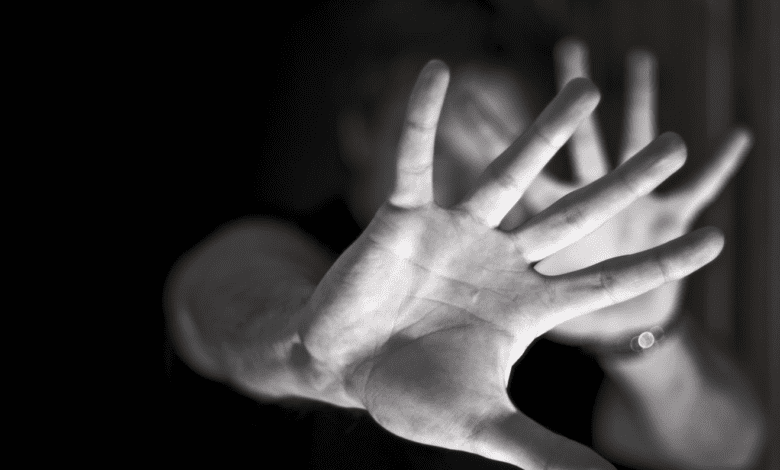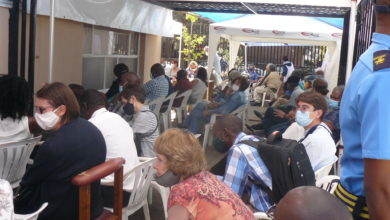
By Nyasha Dube and Priscilla Makondo, Zvishavane
Felistus Gumbo* from Chivi under Headman Chigapa is a mother of three and is also taking care of her husband’s three other children from another woman.
She is a Gender-Based Violence (GBV) victim and like many other victims, she has found herself stuck with her abusive husband because of the COVID-19 induced lockdown.
Felistus says at first she could not report the issue because her friends and family talked her against it, but the most recent violent encounter which left her with an injured head, neck and leg forced her to speak out.
“The issue started when my husband and I had a misunderstanding over our 7-year old daughter. I thought we had ironed out the issue, but he went out to drink beer and when he was drunk he came back and beat me up using a belt. He also tried to chase after my daughter but failed to catch her,” narrated Felistus.
Felistus says she had to flee with her daughter, as her two other children are staying with a relative.
“We spent the night at the headman’s place and my daughter was nursing my wounds. My husband did not seem concerned at all and now that I am injured my friends and relatives are nowhere to care for me,” she said with a shaky voice.When asked on whether she got treatment, Felistus said the hospital bills were high at she could not be treated instantly.
“I had to walk about 20 kilometres to Chivi hospital and I was in pain. When I got there I was told the medication costs RTGS$486 and the injection I needed cost USD$2. That’s beyond what I can afford. I did not have the money,” she said.
Felistus used to survive working in other people’s fields, but with her state, she can no longer do that.
“I had to look for the money from well-wishers because I am no longer able to work. My husband has never supported me financially. When he earns money from cattle herding he spends it all on beer and comes back home shouting,” Felistus said.
The police could not help Felistus either, as they demanded a note from the doctor.
“I went to the police station to report the case. I was told that I should first be examined by the doctor to see the severity of my injuries. The doctor is not available at the hospital everyday, so I had to wait for the day when he would be available.”
Felistus’ story highlights the plight of many other women in rural areas who have encountered gender-based violence but face many barriers in getting help.
The situation has been worsened by the lockdown as most victims are stuck with their abusers, and public transport unavailability has resulted in the failure of victims to find help on time.
According to the Musasa Project national GBV hotline, they received a total of 6 200 GBV calls from the beginning of lockdown on the 30th of March 2020 to November last year.
The statistics show that most reports were received in the first month of the lockdown as most families became exposed to food insecurity, loss of income and other socio-economic impacts of the lockdown, thereby leading to family conflicts.
The statistics further show that 94 percent of the calls were from women, and 90 percent of the cases were intimate partner violence.
There was also a 60percent increase in GBV cases during lockdown compared to the period before lockdown.
Civil Society Organizations also say cases of GBV have been on the increase especially in rural areas during the lockdown.
Hands of Hope Trust director Millicent Nhutsve says little has been done to help women who encounter abuse.
“Police stations are far and when the women report cases of GBV at traditional courts justice is not served because of cultural beliefs, the women are sent back to that abusive environment. Some victims end up being killed by their abusers,” she said.
She added that GBV has a bearing on the upbringing of children and that it is everyone’s duty to educate women about their rights.
“There must be a lot of awareness on GBV and all its forms. Women must be taught that it is not okay to stay in an abusive relationship or marriage just because they have no financial security. Funds must be set aside to assist GBV victims and safe shelters must be made available and easily accessible so that women get safe spaces and counselling,” Nhutsve said.
Traditional leaders also share the same sentiments as Chief Masunda from Zvishavane said most women in rural areas are facing challenges in reporting their issues at traditional courts, due to fear of shame and stigma.
“It’s true cases of GBV and gender inequality remain a challenge especially in rural mining areas. As chiefs, we are available 24/7 to assist women who are being abused by their partners,” said Chief Masunda.
He added that women tend to forgive their partners because they have no financial security.
“Another challenge is that women report their issues and later on drop the charges probably because the husband is the breadwinner. At the end of the day the problem is not solved,” he said.
Chief Masunda implored all responsible stakeholders to educate women on their rights and make services accessible and available. He also challenged the government to capacitate police with resources so that when a GBV matter is reported, it does not take too long for the victims to get assistance.
Zimbabwe Republic Police (ZRP) Midlands spokesperson Inspector Emmanuel Mahoko defines domestic violence as at unlawful act which results in death or direct infliction of physical, sexual or mental injury occuring between two people related to each other.
“We have had reports of this nature coming in different forms, and in worst-case scenarios lives are lost,” said Mahoko.
Mahoko urged families to promote dialogue as a way of solving their misunderstandings.
“When all sense of reasoning has failed, victims should report to the police and seek legal assistance. ZRP has a Victim Friendly Unit at all police stations trained to give professional and special investigation to ensure that perpetrators are brought to justice,” Mahoko said
*Not her real name





